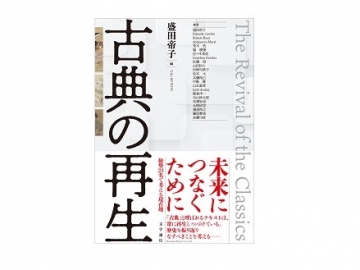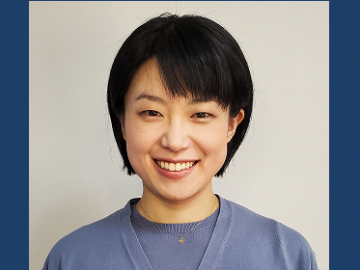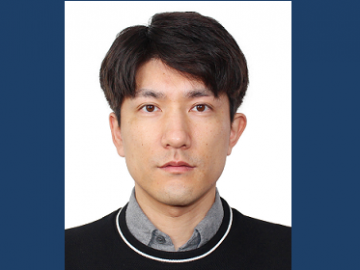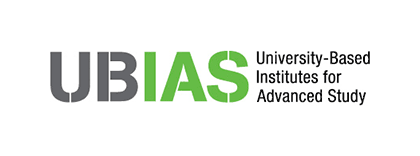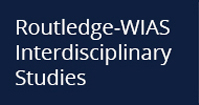Researchers
We welcome 9 researchers in April 2021.
FITTLER, Áron
I am conducting research on Japanese classical literature, especially waka poetry; their translation into foreign languages; their acceptance and transformation overseas; and comparative research with Western poetry. I empirically examine waka expressions and rhetorical methods, and confirm and analyze the manner in which previous translations dealt with those expressions and methods. Then, after analyzing the expression and structure of Western poetry, I will identify background and expression methods similar to those of waka poetry, and will work to achieve a common conceptualization. Through that approach, I intend to propose a new translation methodology based on that common conceptualization.
FUJITA, Tomohiro
85% of all matter in the universe is invisible matter of an unknown nature, called dark matter. Determining its identity is one of the most important current issues in physics and astronomy. I am focusing on one candidate for dark matter called Axion, and I aim to discover dark matter through astronomical observations and laser experiments in tandem with theoretical research. My research also includes the study of the primordial universe (before the Big Bang) and the physics of the distribution of galaxies.
FUKUNAGA, Tsukasa
Many of the genes contained in living organisms, including humans, are function-unknown genes, and estimation of their function has influence in a wide variety of fields, ranging from foundation biology to applied fields such as drug discovery and medicine. The objective of this research is to develop software for highly accurate and practical estimation of the function of function-unknown genes, through the application of machine learning methods with probabilistic models as a key.
INATA, Kana
Although contemporary theories on democracy place a special significance on the role of elections, some unelected political actors possess substantive political power. My research seeks to theoretically explore under what conditions unelected political actors can exercise political powers and where their political powers come from. My specific focuses are on monarchs and civil advocacy groups.
JU, Yiyi
Summarizing IPCC Assessment Reports for policymakers relies considerably on the outcomes of different energy-economic and integrated assessment models. My current work aims to establish a platform soft-linking these models in Asia via the unification of industry technologies description. Such linking may reduce inter-model uncertainties, which is crucial for informing global and regional climate policy debate. All research topics involving energy transition or climate policy instruments fall within my research interests.
KONDO, Aki
In my previous research, I have shown that current perception and judgment of brightness and facial attractiveness were assimilated with those in preceding trials (sequential effect). Based on these findings, I will examine the mechanism of the sequential effect in perception and decision-making, with the aim of eliminating adverse effects such as unfair judgment caused by the sequential effect in real life judgment scenarios.
KONG, Garry
Human cognitive functions are surprisingly limited. We can retain short-term memory related to perhaps four items, and can pay attention simultaneously to even fewer. Nevertheless, humans usually do not feel any limitation to those functions in our daily life, because we use techniques that split or combine information into discrete chunks to avoid exceeding our limits. I am studying how these techniques are enacted, what effects they can have, and whether or not one person’s technique can be applicable to others.
SHAMOTO, Yota
I study the Stokes structures and Hodge structures, which appear in the context of the mirror symmetry conjecture. These structures are fundamental objects in complex analysis and complex geometry. Recently, it appears that they are related to new objects, such as derived category of coherent sheaves and quantum cohomology groups via the mirror symmetry conjecture. I would like to understand the structures more deeply through study of that new relationship.
UNNO, Noriko
I study the history and culture of the Hui, a people in contemporary China considered to be the descendants of West/Central/Southeast Asian Muslims who migrated to China from the 7th century onward. By illuminating their complex self-perception, their relationships with non-Muslims, and the trajectory of their exchanges with the Islamic world, I hope to advance our understanding of ethnic and religious issues in modern Eurasia.
Introduction of our activities
1. International Symposium, “Solve Climate by 2030 in Waseda – A Path to the Solution of Global Warming Issues by 2030 –”
“Solve Climate by 2030” is an initiative by the Open Society University Network, which is affiliated with Association of Pacific Rim Universities (APRU), an international consortium of 58 universities including Waseda University. In this project, experts from around the world give web-based lectures to students who will lead the world in the future, and join in collaborative thinking toward the solution of global warming issues.
This online symposium was held jointly by three institutes at Waseda University:
The Institute for Advanced Social Sciences (IASSS)
The Research Institute for Environmental Economics and Management (RIEEM)
The Waseda Institute for Advanced Studies (WIAS)
Experts invited to contribute to the symposium were Toshihide Arimura, director of WIAS; Mika Ohbayashi, director of the Renewable Energy Institute; Rika Sueyoshi, founder and director of Ethical Association: and Hajime Kamiyama, director of the Next Generation Energy Promotion Section in the Climate Change and Energy Division of Tokyo Metropolitan Government’s Bureau of Environment.
WIAS Director Toshihide Arimura (Professor, Faculty of Political Science and Economics) gave a lecture entitled, “Decarbonization through carbon pricing.” He introduced carbon pricing as an effort to move “outside the market” environmental problems to “inside the market,” and explained that method, which takes two forms: 1) taxation such as environmental tax and carbon tax; and 2) emissions trading in the commercial market through the pricing of carbon. Emissions trading, in particular, is a rational method that can reduce greenhouse gases at low cost. Professor Arimura pointed out that although this approach has been adopted in various countries around the world, it has not yet been taken up in Japan at the national level.
The symposium lectures were distributed online in Japanese and English. They were viewed by many undergraduate and graduate students, and high school students as well, and by more than 150 persons in Japan and overseas.
The details of the symposium are reported on the following web page of Waseda University, and the archived proceedings can be viewed on YouTube.
https://www.waseda.jp/top/en/news/74471
The event program is presented below.
<Program>
Date (live online): 14: 00-15: 30 (JST), Saturday, April 10, 2021
Moderator: Kenichi Akao (Professor, Faculty of Social Sciences)
Opening remarks: Masahiko Genma (Professor, Faculty of Social Sciences. Vice President for International Affairs. Waseda University)
Lectures:
1. Mika Obayashi (Director, Renewable Energy Institute)
“Energy Transition for Decarbonization”
2. Rika Sueyoshi (Founder and Director of The Ethical Association)
“Ethical Consumption as a Climate Change Remedy”
3. Hajime Kamiyama (Director of NEXT Generation Energy Promotion Section, Climate Change and Energy Division, Bureau of Environment, Tokyo Metropolitan Government)
“Tokyo Metropolitan Government’s efforts to Disseminate Hydrogen Energy for Decarbonization”
4. Toshihide Arimura (Professor, Faculty of Political Science and Economics. Director, Waseda Institute for Advanced Study. Director, Research Institute for Environmental Economics & Management. Waseda University)
“Carbon Pricing for Carbon Neutrality”
Closing Remarks: Ayu Washizu (Professor, Faculty of Social Sciences. Director, Institute for Advanced Social Sciences)
2. WIAS Research Debriefing Session
WIAS holds a Research Debriefing Session by the third-year researchers annually to provide them with an opportunity to widely disseminate the results of their research. This time, on Tuesday, July 20, 2021, the researchers listed below presented the results of their unique studies, such as optimization of a heat exchanger system; urban planning that corresponds to a knowledge society; application of game theory to the solution of social problems; and analysis of human body proportions in ancient Egypt from the perspective of the integration of architecture and art. We received valuable opinions and advice from researchers from within and outside the university. Despite the fact that research activities such as experiments, overseas fieldwork and data collection have been restricted due to the Covid-19 pandemic, it was well acknowledged that our researchers have made a variety of efforts, working on research in collaboration with researchers in related fields, and have steadily achieved substantial research results.
Natural science field
| Name | Area of expertise | Presentation theme |
| GIANNETTI, Niccolo | Mechanical Engineering, Thermal Engineering | Interdisciplinary Theory of Interfacial Multiphase Processes for Advanced Modelling and Control of Engineering Thermal Systems |
| YAMAMURA, Shu | Urban Planning, Community Design | Urban Planning and Community Design Based on Knowledge-Creating Industrial Milieu |
| OKAWA, Hirotada | Astrophysics, General Relativity | Development of numerical methods for nonlinear elliptic partial differential equations |
Social science field
| Name | Area of expertise | Presentation theme |
| LOTTAZ, Pascal | Neutrality Studies, International Relations | Neutrality in International Relations |
| SUNAM, Ramesh | Human Geography, International Migration | Precarity in intra-Asian labour migration in the time of COVID-19 Pandemic: Specific Insights from Japan |
| YOKOTE, Koji | Game Theory, Market Design | Analysis of desirable mechanisms for indivisible good allocation: an approach from game theory and discrete mathematics |
| LEE, Yeon Ju | Comparative Politics, Comparative Political Economy | Judging Inequality: A Sense of Injustice, Inequality Perceptions, and Politics |
Humanities
| Name | Area of expertise | Presentation theme |
| AKIYAMA, Tetsu | Modern History of Central Asia | The Historical Sociology Dynamics of Modern Central Asian States through Life Histories and Media Analysis |
| KIM, Younglong | Modern and Contemporary Japanese Literature | Law and Literature: Rethinking Tokyo Trial in Modern and Contemporary Japanese Literature |
| YASUOKA, Yoshifumi | Architectural History, Mediterranean Civilizations | Design Theories in Mediterranean Art and Architecture |
Information
WIAS invites outstanding overseas researchers who are active internationally, and contributes to the energizing of research activities at Waseda University through academic exchanges and seminars between our researchers and the invitees. Click here for more information.
Visiting Researchers
- July 4, 2021 – August 3, 2021
BERLINGUEZ-KONO, Noriko
Professor, University of Lille (France) - May 31, 2021 – July 1, 2021
IMPEDOVO, Maria Antonietta
Senior Lecturer, Aix-Marseille University (France)
Visiting Scholar
- May 10, 2021 – July 5, 2021
YIALLOURIDES, Constantinos
Lecturer, University of Aberdeen (UK)
We welcome your comments and suggestions. Please contact us at the coordinates below.
Waseda Institute for Advanced Study (WIAS)
1st floor, Nishi-Waseda Bldg.
1-21-1 Nishi Waseda, Shinjuku-ku, Tokyo 169-0051, JAPAN
URL:https://www.waseda.jp/inst/wias/en/
TEL:03-5286-2460
FAX:03-5286-2470
E-mail:[email protected]


